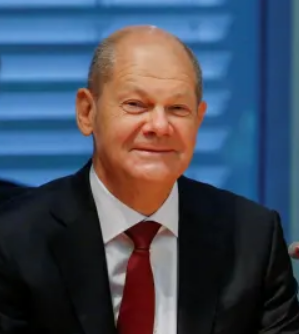Saxo Banks makroøkonomiske chef vurderer, at den næste tyske regering bliver en trafiklys-koalition mellem SPD, De Grønne og det liberale parti FDP under ledelse af socialdemokraten Olaf Scholz. Den nye regering ventes at investere massivt i klima-forbedringer. Der bliver ingen skattestigninger. Den nye regering vil skabe ro på det tyske kapitalmarked. Regeringsforhandlingerne kan vare længe. Næste år er der præsidentvalg i Frankrig. Der vil det grønne parti ikke spille nogen rolle, men en Trump-inspireret populist kan få stor tilslutning. Dog er det mest sandsynlige udfald, at valget kommer til at stå mellem højrefløjens Marine Le Pen og Emmael Macron, der søger genvalg.
Election updates : German political uncertainty, a Trump-inspired presidential candidate in France
Summary: My non-scientific guess is that the next German government will certainly be a coalition of the SPD, the Greens and the FDP – the so-called Traffic Light coalition. Expect long and intense negotiations in the coming weeks, or perhaps months. But the market impact of German political uncertainty will likely be marginal. In France, the winner of the Green party primaries to run for the 2022 presidential election will be announced tomorrow. Franky speaking, it does not matter much. Support for the Greens is too low to really influence the outcome of the presidential election. Investors should however start to get more familiar with a Trump-inspired candidate who gathers up to 10% of voting intentions in the first round according to recent polls. Momentum is on his side, for now. Christopher Dembik, Head of Macro Analysis.
Uncertainty prevails in Germany: According to the Federal Returning Officer website which is responsible for overseeing elections on the federal level, the center-left SPD won 25.7% of the vote, followed by the center-right CDU/CSU which garnered 24.1%, the Green Party with 14.8% of the vote and the pro-business FDP at 11.5%. These are preliminary results. But the SPD is now in position to begin negotiations to form the new government. This process could take weeks, or even months. Here are my auxiliary observations:
- The centrist parties have gained a lot. The far-right AfD is 2 points lower and the far-left Linke 4 points lower than in the 2017 election. Both are now consigned to former East Germany. The centrist parties gather around 75% of the vote.
- The Greens and the FDP could play as a kingmaker in the upcoming negotiations. Given the Greens’ result is a bit disappointing (the Greens reached 20% of the vote at the 2020 European election for instance), we consider that the FDP has more political leverage to influence the formation of the next government and its policy agenda, especially regarding taxation. Both could work hand in hand in the coming weeks in order to choose the best coalition partner between the SDP and the CDU/CSU. This is exactly what proposed FDP’s chairman Christian Lindner yesterday evening.
- A new grand coalition and a minority government are unlikely. A majority of voters reject these options. We believe the next government will be a three-party coalition between the SPD, the Greens and the FDP (the so-called Traffic Light coalition) or between the CDU/CSU, the Greens and the FDP (the so-called Jamaica coalition).
- German politicians across all political parties acknowledge there is an urgent need for more investments, especially to reach a low-carbon society. We expect the next government will create the right conditions to stimulate the green transition. A dedicated green investment fund could be created. Hopefully, the next government will also backpedal on the decision to exit nuclear power.
- There will be no taxation hikes, in my view. This is one of the two red lines along with the debt brake drawn by the FDP. Most potential coalition partners are fine with that.
- Investors rightly see the German election and the following negotiations as a low-risk event. We doubt it will have much impact on the bond market and the euro in the near term, for instance.
French presidential election update: Tomorrow, the name of the winner of the Green party primaries will be announced. The two remaining candidates are Yannick Jadot, a moderate environmentalists, who is pushing for a common strategy of the Left towards 2022, and Sandrine Rousseau, an economist who is often portrayed as the “woke” candidate of the election. If pragmatism prevails, Jadot should win the primaries. But this is far from certain. Frankly speaking, it does not matter much. Support for the Greens is too weak in France to really influence the political debate and the outcome of the 2022 presidential election.
Investors should however get familiar with a Trump-inspired candidate who gathers up to 10% of voting intentions in the first round according to several polls. Eric Zemmour is a xenophobic TV columnist, more radical than far-right leader Marine Le Pen and who openly defends nationalist and anti-Muslim measures. He considers France is engaged into a civilization war against Islam. He is not officially candidate yet. But it is clear he is inclined to run. Momentum is on his side, for now. Several recent polls show that 10% of voters support him, up from 7% in early September and 5% July. For the sake of comparison, he gathers more support than some of France’s most established political parties, including the Socialist Party.
He is the main thorn in the foot of Le Pen at the moment. However, we don’t think he will make it to the election day. Perhaps he will be able to get the needed sponsorships to run. But a scandal can happen quickly. We think he will drop out of the race before the first round. We still expect a second round between Le Pen and President Emmanuel Macron.











